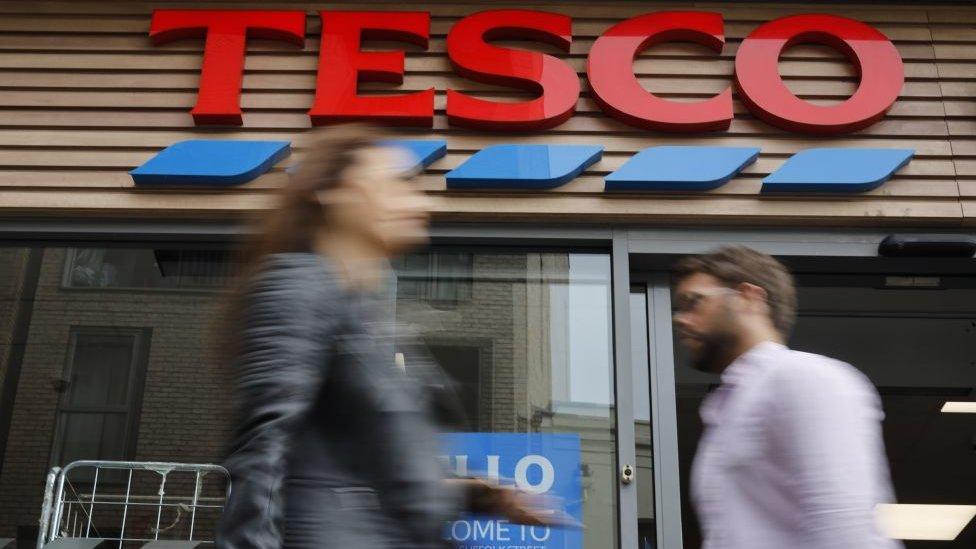Coronavirus: Shops 'exploiting' pandemic by profiteering
- Published
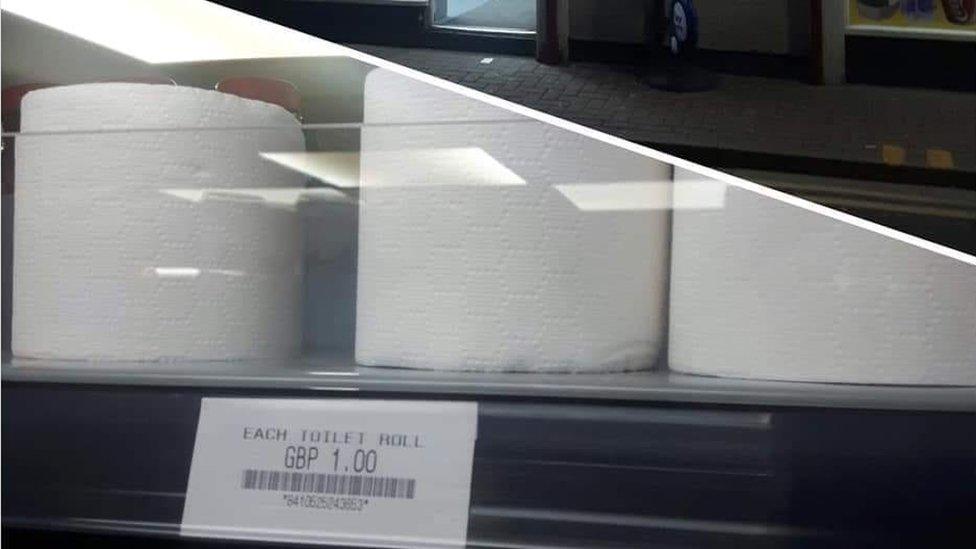
Toilet paper was photographed on sale for £1 a roll in Denbighshire
Some shopkeepers have been profiteering during the coronavirus pandemic, Trading Standards Wales has found.
Customers across Wales have reported seeing hand sanitiser being sold at £15 for 250ml, toilet rolls for £1 each and pasta sold by the handful.
The Competition and Markets Authority launched a taskforce to crackdown on the profiteers and called for emergency legislation to prevent price hikes.
The Welsh Government said it was working to maintain normal supplies.
Trading Standards officers in Swansea have received complaints of Calpol being sold for £10, loaves of bread doubling in price to £3, packs of toilet roll being sold for £8.50, individual toilet rolls being sold from a multi-pack, pasta being sold by the handful and halal meat more than trebling in price to £11 per kilo (35 ounces).
Swansea council's cabinet member for environment and infrastructure management Councillor Mark Thomas warned the unscrupulous shopkeepers that people had a long memory.
He recalled the owner of two shops gratuitously overcharging for bread in the aftermath of huge snow storms in 1982: "When it was over, both shops shut within a few weeks," he said.
"People will remember."
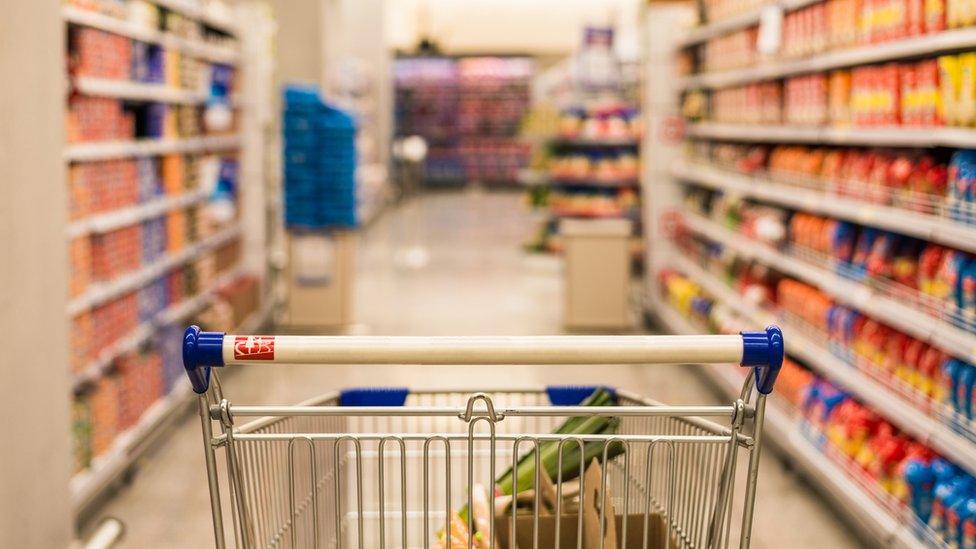
Profiteering shopkeepers risk receiving a warning or enforcement action from the Competition and Markets Authority
The Competition and Markets Authority, a non-ministerial UK government department, has written to all Welsh MPs and assembly members to highlight the issue.
Its chief executive Andrea Coscelli said: "This is obviously a time when we all have to behave responsibly to protect our fellow citizens, and particularly those who are most vulnerable.
"We urge retailers to behave responsibly in the exceptional circumstances of the Covid-19 outbreak.
"But if they do not, our taskforce is monitoring market developments to enable us to intervene as quickly as possible."
She said interventions could include warnings, enforcement action or seeking emergency powers.
"We hope that such action will not be necessary, but we will do whatever is required to stop a small minority of businesses that may seek to exploit the present situation," she said.

A SIMPLE GUIDE: How do I protect myself?
AVOIDING CONTACT: The rules on self-isolation and exercise
WHAT WE DON'T KNOW How to understand the death toll
TESTING: Can I get tested for coronavirus?
LOOK-UP TOOL: Check cases in your area

Delme Nash, a senior trading standards officer at Torfaen council, said Torfaen Trading Standards had also received complaints about profiteering over the last few weeks.
'They can charge what they like'
"Mostly, this is an increase of hand sanitiser, toilet rolls being sold singularly etc," he said.
"Current pricing legislation is insufficient to deal with price gouging... effectively they [shops] can charge what they like.
"We can take action when prices are advertised at one price and then sold for a higher price but not when a product is priced correctly. It is clear that current pricing legislation is ineffective in this instance."
Alison Farrar, an investigator for Trading Standards Wales, said it had received about 30 complaints about profiteering in the last two weeks.
"These range from prices doubling to splitting up four-packs of soap and selling at a high price," she said.
"The advice is not to pay these inflated prices and report them immediately.
"However, the widespread worry and uncertainty around the current measures mean that people don't know when they can next get to the shops."
The Welsh Government said it "would never expect" any individual or business to try and profit from a pandemic.
A spokeswoman added: "This is a worrying time for everyone and our efforts have been focused on working with supermarkets and shops to maintain supplies through the crisis."
- Published3 April 2020
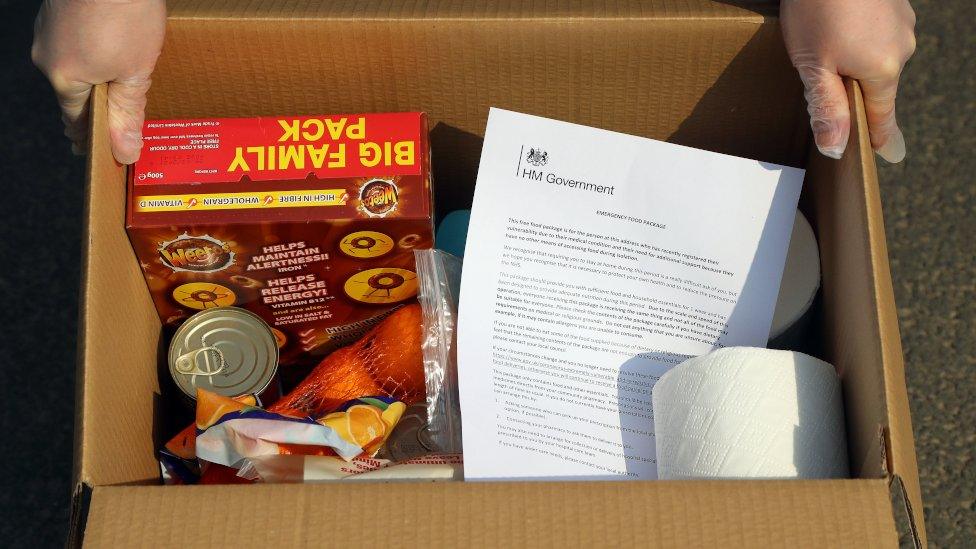
- Published8 April 2020
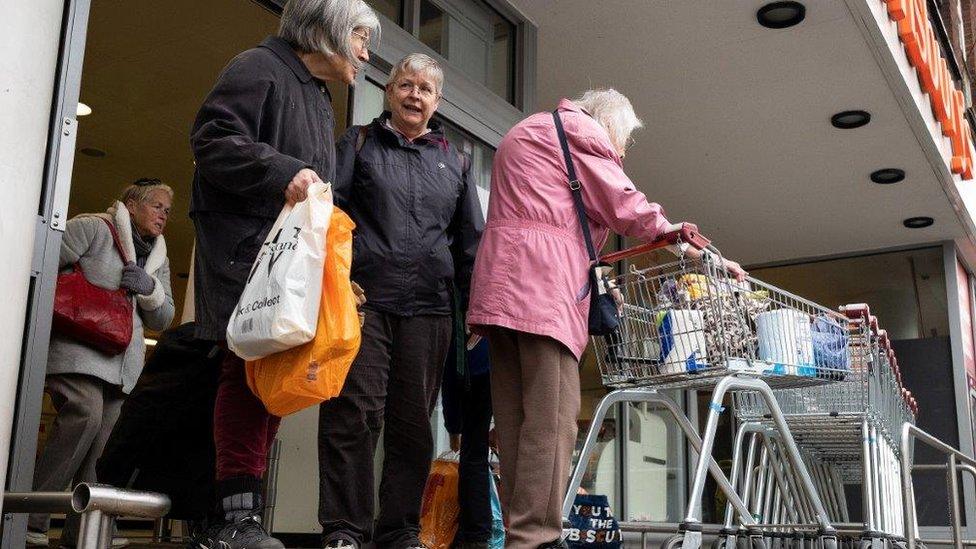
- Published8 April 2020
